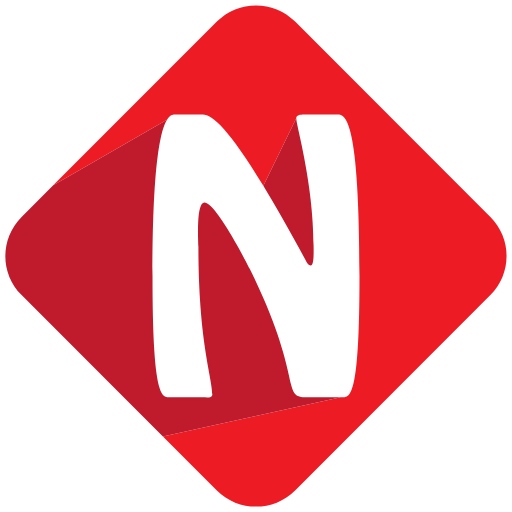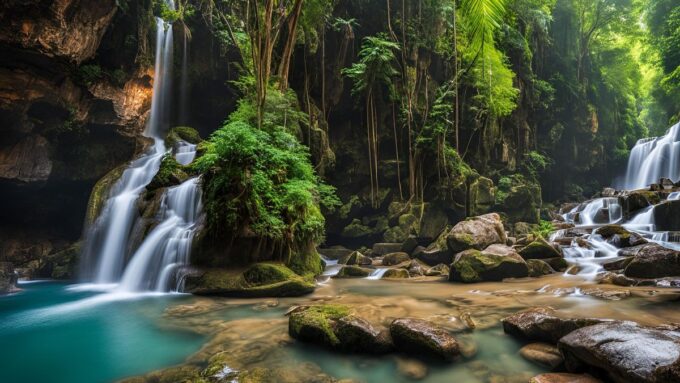No products in the cart.
Weekly Newsletter
Excepteur sint occaecat cupidatat non proident
© Copyright 2022 Jellywp. All rights reserved powered by Jellywp.com
Home
Tech
AI in Creative Industries: How Artificial Intelligence is Redefining Art, Music, and Writing
TechTechnology NewsAI in Creative Industries: How Artificial Intelligence is Redefining Art, Music, and Writing

AI in Creative Industries
Share
Introduction
Artificial Intelligence (AI) is rapidly transforming industries across the globe, and the creative sectors are no exception. From generating stunning visual art to composing music and even writing poetry, AI is pushing the boundaries of what was once considered exclusively human territory. In this edition of News Today, we explore how AI is revolutionizing the creative industries and what this means for artists, musicians, and writers.
AI and Visual Art: Beyond the Brush
Traditionally, art has been viewed as a purely human endeavor, driven by emotion, experience, and unique personal expression. However, AI is changing that narrative. With the development of sophisticated algorithms, AI can now create original artwork that rivals, and sometimes even surpasses, human creations.
AI platforms like DeepArt, DALL-E, and Google’s DeepDream are at the forefront of this revolution. These programs analyze existing artworks, learning styles and techniques, and then generate new pieces that are both innovative and visually striking. Some AI-generated art has even been auctioned off for substantial sums, raising questions about the role of the artist in the age of AI.
In News Today, we see that AI isn’t just a tool for creating digital art but is also influencing traditional media. Artists are using AI to generate new ideas, explore unfamiliar styles, and push the limits of their creativity. This collaboration between human and machine is opening up new possibilities for artistic expression.
AI in Music: Composing the Future
Music, much like visual art, has always been deeply intertwined with human emotion and experience. However, AI is proving to be a formidable composer. Tools like OpenAI’s MuseNet and Amper Music can create complex musical compositions in various styles, from classical to jazz and pop, with minimal human input.
AI’s ability to analyze vast amounts of music allows it to understand and replicate the nuances of different genres and artists. For example, MuseNet can generate music in the style of Beethoven or The Beatles, blending classical and contemporary influences in ways that human composers might not even consider.
In today’s News Today, the music industry is embracing AI not just for composition but also for enhancing production processes. AI can mix and master tracks, analyze trends, and even predict hit songs. This integration of AI is democratizing music creation, allowing anyone with access to these tools to become a music producer.
However, the rise of AI in music also raises ethical and philosophical questions. What defines authorship in a piece created by AI? How will AI-generated music impact the livelihoods of composers and musicians? These are ongoing debates that will shape the future of the industry.
AI and Writing: The Next Chapter
Writing is another creative domain where AI is making significant inroads. Natural Language Processing (NLP) models, such as GPT (Generative Pre-trained Transformer), can now generate human-like text with remarkable fluency. These AI systems can write essays, stories, poetry, and even journalistic articles.
AI-powered tools like Grammarly and Jasper are already assisting writers by suggesting improvements, generating content ideas, and even drafting entire pieces. In News Today, AI-generated content is increasingly common in newsrooms, where it is used to produce data-driven reports, summarize complex information, and generate real-time news updates.
Moreover, AI’s impact on writing extends to more creative forms, such as fiction and poetry. AI-generated literature is gaining traction, with some AI-written books and poems receiving critical acclaim. This trend is blurring the lines between human and machine creativity, leading to new forms of collaborative storytelling.
However, the integration of AI in writing also poses challenges. Issues of originality, authenticity, and the potential for AI-generated misinformation are key concerns. As AI continues to evolve, the writing community will need to address these challenges while exploring the opportunities AI offers.
Conclusion
Artificial Intelligence is undeniably redefining the creative industries, offering exciting possibilities while also challenging long-held beliefs about art, music, and writing. In today’s rapidly changing world, covered by News Today, the fusion of AI and human creativity is leading to a new era of innovation.
As AI becomes more integrated into the creative process, it’s crucial to consider both the opportunities and the challenges it presents. While AI can enhance and expand creative possibilities, the human element remains essential in imbuing art, music, and writing with meaning and emotion. The future of creativity lies in the collaboration between human ingenuity and artificial intelligence, leading to new forms of expression that we are only beginning to imagine.
Explore more
Related Articles
Technology News NewsToday3 Mins read
NewsToday3 Mins read
iPhone and Tesla: The Ultimate Duo for Smart Car Enthusiasts
In the world of smart cars, the iPhone and Tesla partnership has...
Tech NewsToday2 Mins read
NewsToday2 Mins read
How iPhone and AI Are Transforming the Future of Car Safety
Introduction As technology continues to evolve, iPhone and AI are transforming the...
Technology News NewsToday2 Mins read
NewsToday2 Mins read
iPhone 16 Leaks: 5 Revolutionary Changes for In-Car Navigation
Introduction The iPhone 16 leaks have generated substantial excitement in the tech...
Technology News NewsToday3 Mins read
NewsToday3 Mins read
The Future of Driving: Apple’s Plans for iPhone in Autonomous Cars
1. The Role of iPhone in Autonomous Cars Apple has always been...













Leave a comment